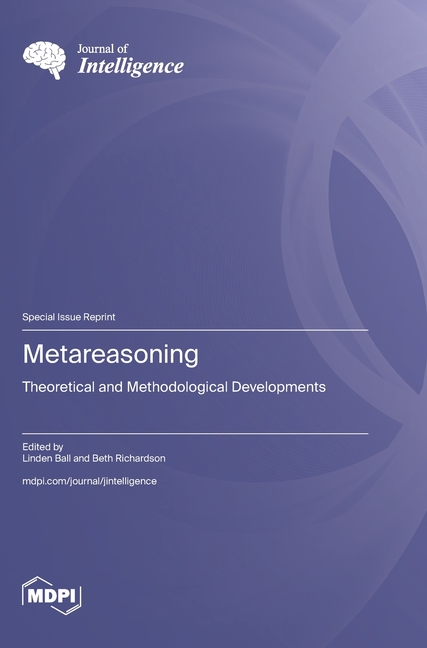Description
This Special Issue elucidates current theoretical and methodological developments in the field of metareasoning, which is concerned with the metacognitive processes that monitor and control our ongoing thinking and reasoning. Monitoring processes evaluate the efficacy of the "object-level" cognition that underpins task performance, including processes that are involved in understanding task information, drawing inferences, and making decisions. In contrast, control processes allocate cognitive resources (e.g., attention and working memory), initiate new strategies, and terminate failing ones. The articles in this Special Issue are organised around three themes: The first relates to the interplay between metareasoning and object-level reasoning when the latter is conceptualised from a "dual-process" perspective, whereby relatively rapid, intuitive, and heuristic processes give rise to default responses that can be intervened with by relatively slow, reflective, and analytic processes. The second theme concerns the nature of individual differences in metareasoning, which is a topic currently under increasing scrutiny. The third theme concerns the way in which metareasoning research is rapidly extending its reach to answer challenging questions in new domains of enquiry beyond those that have traditionally been the preserve of investigations. Such research is giving rise to both valuable methodological developments and important theoretical advancements.
Product Details
- Jul 1, 2025 Pub Date:
- 3725840520 ISBN-10:
- 9783725840526 ISBN-13:
- English Language




